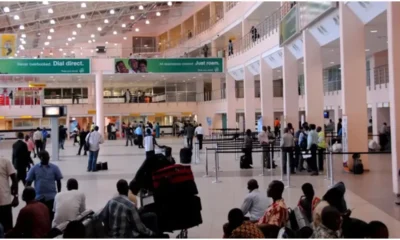Nigeria News
Nigeria receives $751.88 million from recently approved World Bank loan

The World Bank has disbursed $751.88 million to Nigeria from a recently approved $1.5 billion loan.
According to findings by Nairametrics, this amount was released under the Nigeria Reforms for Economic Stabilization to Enable Transformation (RESET) Development Policy Financing Program (DPF) project.
This loan is part of a larger $2.25 billion package approved by the World Bank for Nigeria on June 13, 2024, aimed at bolstering reforms within the country.
The $1.5 billion loan consists of two agreements between Nigeria and the World Bank: a $750 million credit from the International Development Association (IDA) and a $750 million loan from the International Bank for Reconstruction and Development (IBRD).
Of the amount disbursed, $750 million is from the IDA credit and $1.88 million from the IBRD, leaving an undisbursed balance of $748.13 million.
The DPF for Nigeria is structured into two tranches to support significant reforms aligned with the government’s economic stabilization and recovery priorities. These include:
- Increasing fiscal oil revenues to 2.7% of GDP by 2025.
- Boosting non-oil fiscal revenues to 7.3% of GDP by 2025.
- Expanding social safety nets to benefit 67 million vulnerable Nigerians.
- Increasing the import value of previously banned products to $54.6 million by 2025.
The Federal Ministry of Finance (MOF), under the oversight of the World Bank, will implement these reforms in collaboration with key stakeholders such as the Central Bank of Nigeria (CBN) and the Ministry of Humanitarian Affairs and Poverty Alleviation (MHAPA).
The World Bank will supervise and support the implementation process to ensure efficient progress towards the operation’s goals.
Nigeria must meet specific conditions outlined in the financing agreement to access the entire funds. These include:
- Implementing a Presidential Executive Order for fiscal transfers at market exchange rates.
- Submitting a draft bill to increase the VAT rate to 12.5% by 2026.
- Revising the National Social Investment Program Bill to use the national social registry for targeting social investments.
While Nigeria has made initial progress in areas such as adjusting gasoline prices and launching cash transfer programs, ongoing monitoring is crucial to maintain compliance with reform commitments.
The World Bank team will closely monitor Nigeria’s adherence to these conditions to ensure continued disbursement of funds.
























